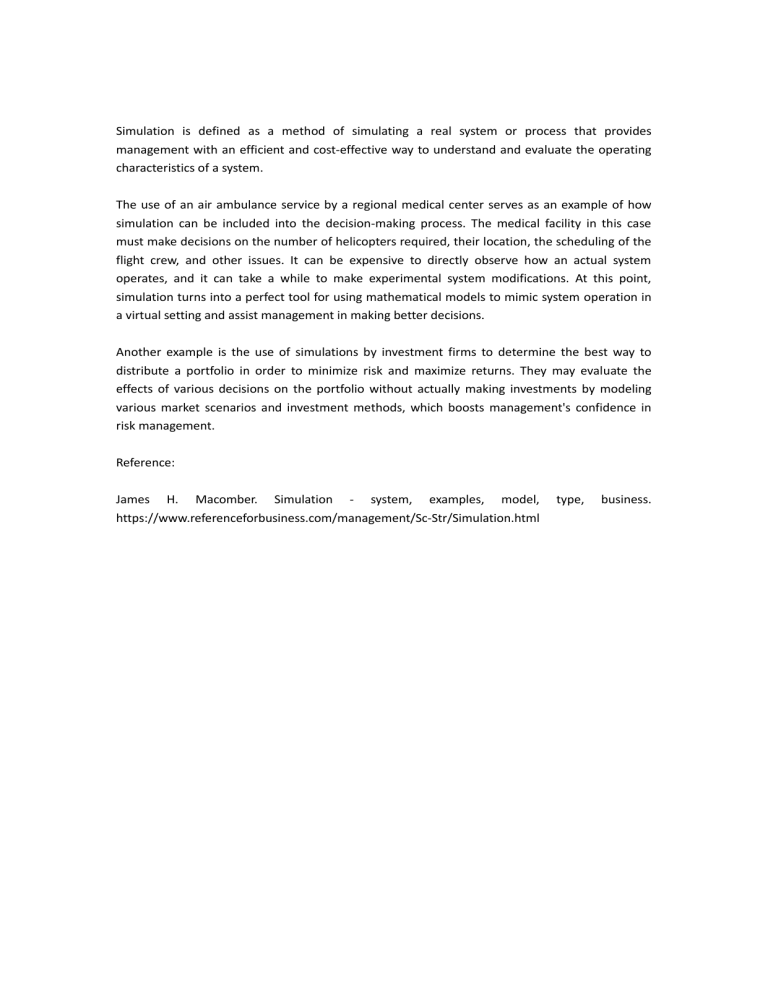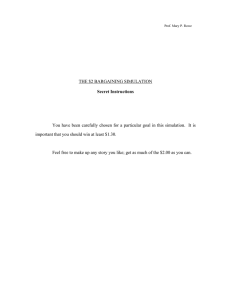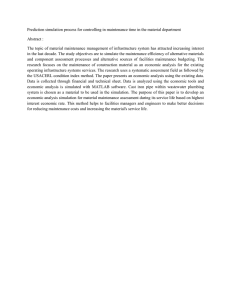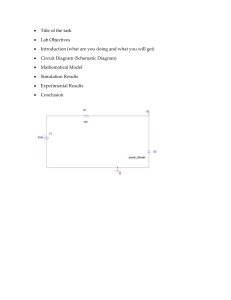
Simulation is defined as a method of simulating a real system or process that provides management with an efficient and cost-effective way to understand and evaluate the operating characteristics of a system. The use of an air ambulance service by a regional medical center serves as an example of how simulation can be included into the decision-making process. The medical facility in this case must make decisions on the number of helicopters required, their location, the scheduling of the flight crew, and other issues. It can be expensive to directly observe how an actual system operates, and it can take a while to make experimental system modifications. At this point, simulation turns into a perfect tool for using mathematical models to mimic system operation in a virtual setting and assist management in making better decisions. Another example is the use of simulations by investment firms to determine the best way to distribute a portfolio in order to minimize risk and maximize returns. They may evaluate the effects of various decisions on the portfolio without actually making investments by modeling various market scenarios and investment methods, which boosts management's confidence in risk management. Reference: James H. Macomber. Simulation - system, examples, model, https://www.referenceforbusiness.com/management/Sc-Str/Simulation.html type, business.



